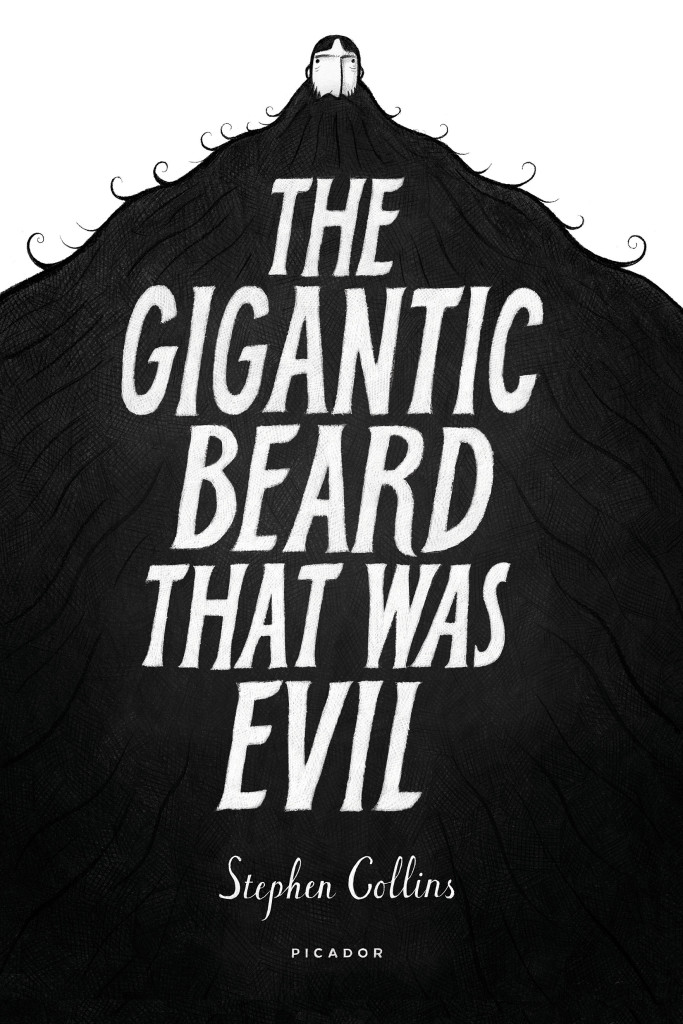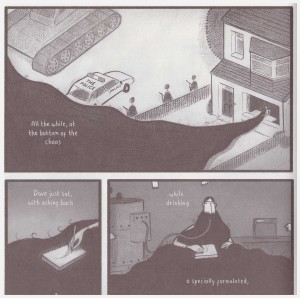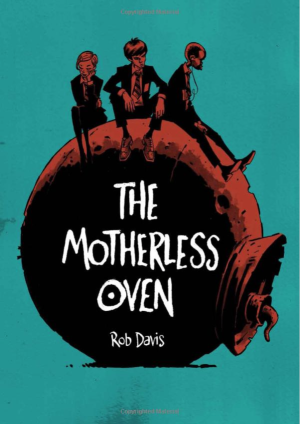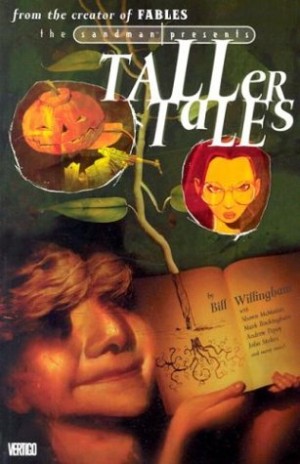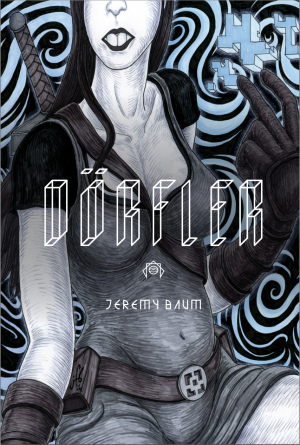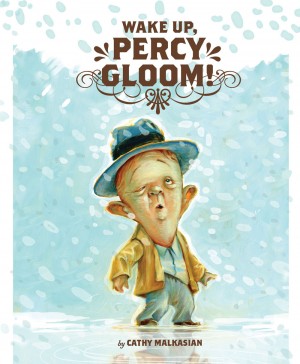Review by Frank Plowright
This is a shaggier shaggy dog story than most, dealing with Dave, once completely hairless bar one single stubborn follicle beneath his nose, and the wearer of a wig to conceal his discomfort at baldness. Dave is a solitary man who’s cosseted by the order and neatness of his community, referred to only as ‘Here’, and derives some satisfaction from drawing snippets of day to day life as it occurs outside his window. He enjoys his administrative office work, even if unsure of its greater purpose. All things considered, he’s the most unlikely individual to be disrupting the natural order of things.
Disrupt he does, though. Disturbed by the random pattern on a chart he retreats distressed to the office bathroom, and then for no particular reason a beard begins to manifest. This grows rapidly and uncontrollably, resisting all attempts at trimming until it reaches an immense size, spreading through the neighbourhood.
Stephen Collins is best known as the creator of droll cartoon strips for the Guardian newspaper, among other publications, but his expansion into long form isn’t entirely satisfactory. There’s no problem with the art, which has a stylistic greytoned precision entirely suitable for this fable about the positive aspects of chaos.
Raymond Briggs has been very complimentary, to the extent of providing a back cover quote, and it’s apparent why. Collins’ work shares the sense of childlike whimsy that Briggs can convey so well, but he lacks Briggs’ innate sense of pacing. There are a multitude of very large panels here, and neither the quality of the art nor the story being told justify this, and they therefore serve to bulk what’s an extremely slim narrative. Excising roughly 50% of the content would provide a far more satisfactory book, as the slightly sinister undertones are very well cultivated, and the simple language very effective.
